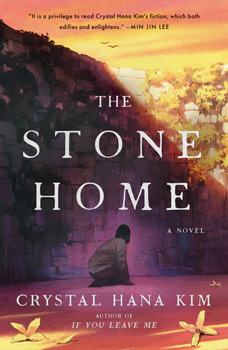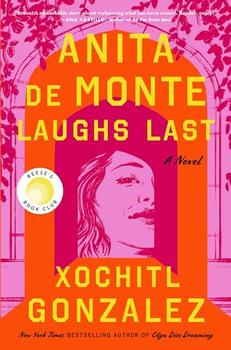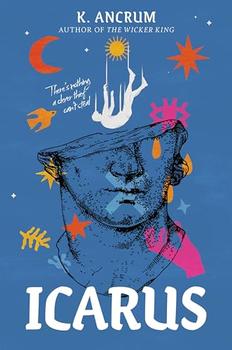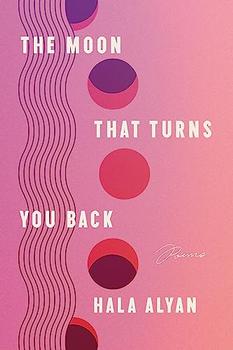Page 4 of 4
There are currently 27 member reviews
for The Stone Home
-
Linda H. (Manitowoc, WI)
The Stone Home Was Not a Home
Crystal Hana Kim's historical novel, The Stone Home, introduces us to a Korean "Home" for a wide range of people: men housed in the Big House and women, housed in the Little House. In 1980, they have been taken off the street for a wide range of reasons. Most have been homeless. It was a Korean state -sanctioned reformatory, not a home in the usual sense, to make them "good citizens." They weren't criminal in the usual sense, just living outside the norms. Kim reveals the reality slowly.
It's Eunju and Sanchul who narrate the novel, and their fates are connected in unexpected ways.
The novel begins with a young woman, Narae, knocking on Eunju's door, holding a knife. She believes she has found her mother, Eunju.
Her father, Sanchul, has died, and he told her to take the knife to Eunju. Eunju was shocked, but she decides to tell Narae how she and her father meet, and under what painful circumstances.
Eunju was taken with her mother from the street to this place where they would be "reformed." Sanchul was "arrested" on the street with his brother. Both are young when they found themselves at Stone Home, and it took a while for them to understand the perimeters of their spaces.
They were closely supervised by other inmates who had been promoted to Keepers. The Keepers were supervised by Teacher, a man without mercy, should they fail in their assignments of getting the most work out of the group they supervised. Ironically, The Chapel was the name of the place where the offenders were punished. The priest was also the Warden. Ugly public punishments were one of the methods of control.
The women were in a gentler environment, and they were responsible for cooking for the institution. They ate last, but at least they had some more freedom. The boys were forced to provide large quotas of products for the state, and the violence they endured was memorable.
The results of the environment were lasting. Narae wants to expose The Stone House but Eunju is more hesitant. It would mean dredging the whole painful experience again.
It's not an easy read by any means, but exposing this reality is important lest we forget what we have done and still do to one another. Readers interested in social justice and government mistreatment of its citizens would appreciate it.
I did wish for a glossary of Korean words in the back.
-
Marie W. (Prescott, AZ)
An Eye-opening But Tough Read
I found The Stone Home a hard book to get into, with its undefined Korean words, disconnected events, several names and titles for a number of characters, and magical realism that, to me, often felt clumsy and forced.
All that said, this is an important book. The Stone Home is based on a historical phenomenon that I had never before encountered: South Korean state-sanctioned communities, utilized in the 1970's and 1980's, and billed as rehabilitation centers. In truth, they more closely resembled concentration camps.
What happens in the book is appalling, some of it stomach-turning. But these places did exist. And as I googled for more information, I read about the Brothers' Home, which featured slave labor, torture, and rape.
In conclusion, I thank Crystal Hana Kim for opening my eyes to a part of history I had never known. I only wish her book had been less of a struggle to read.
-
Gail B.
A Piece of Work
Even though their subjects have been difficult, I've enjoyed several books set in post-war Korea, but I must say The Stone Home was the most tedious to read.
On the positive, I learned about the underside of life in 1980s Korea--not that long ago. Of course, Korea is not all like the Stone Home, but the fact that this place of horror existed needs to be faced. To control child labor in orphanages, physical abuse trickled down from Teacher, to Warden, to Keeper, to the lowest levels of teenaged boys and girls. Interesting that the place was cleaned up to hide its cruel secrets when "big shots" showed up. This is not just old news -- think San Francisco, November 2023. But one cannot hide bruises and starvation and cruelty so easily.
The author's choice to introduce a multitude of characters in the first few pages (which seem like even more because of nicknames) makes the beginning even more difficult. Why use Korean alphabet-- unexplained although, thank goodness, infrequently? It would have been helpful to include a "Directory" of names, as well as a "Dictionary" of Korean terms, unless her primary audience is intended to be specifically Koreans, not the general Western reader.
Why Three stars? Five stars for subject, One for style.
-
Joane W. (Berlin, MD)
The Stone Home
I had several problems with this book. First of all there were a lot of Korean words that I could not understand and there was a lot of violence. The main theme is of these young people thrown into a Reform School that was more like a prison. The treatment by the staff and the horrific living conditions that these kids endured was overwhelming. I might have enjoyed this book a little more if explanations had been given for the dialect
-
Joyce M. (Arlington, VA)
Interesting?
This was an interesting novel. It was very easy to read, but for me, not easy to understand. There are many characters in the novel though I could possibly narrow it to three main characters. The subject is something that I was totally unaware of so the good thing about the novel was enlightenment. However, in the reading the author's notes and acknowledgements at the end, I didn't see the basis for such gory details as described in the book. The level and frequency of human torture was hard to stomach. I didn't realize that one of the main characters had even survived. I also felt there were way too many unanswered questions in the end which was very unsatisfying. I am giving the book three stars because clearly the manner in which it was written was enough to get an emotional reaction out of me. However, I can't recommend the book to anyone.
-
Doris K. (Mountain Iron, MN)
The Stone Home
This was a very difficult book to read. Though the subject matter is based on true facts they are almost unbelievable. It was not pleasant to read the details of how the people in these reformatory centers were treated and often killed. Also the Korean names of food and people were confusing.
The author writes well as descriptions of people and places put the reader at the scene in a vivid manner.
Although historical fiction is the genre I prefer to read I really can't recommend this book to anyone other than a person who has a particular interest in South Korean history.




